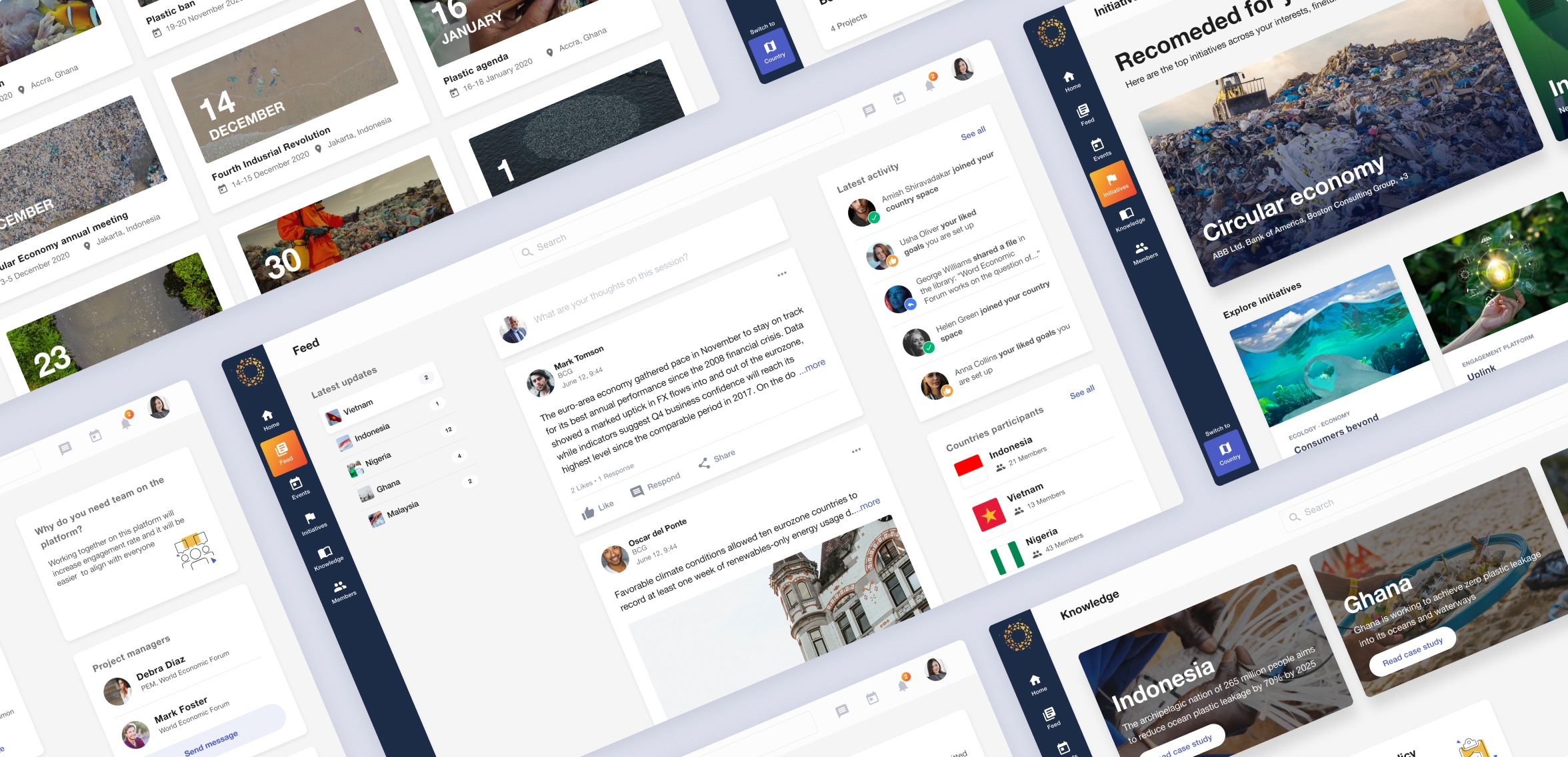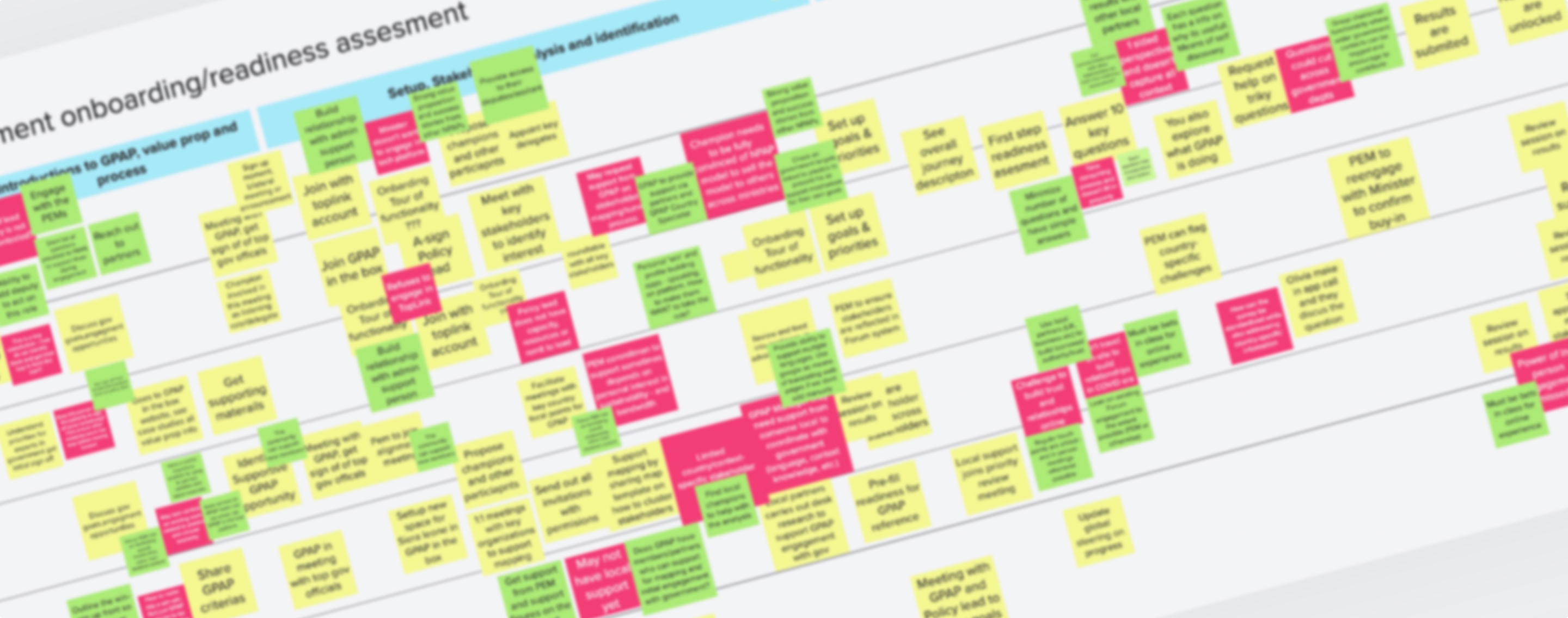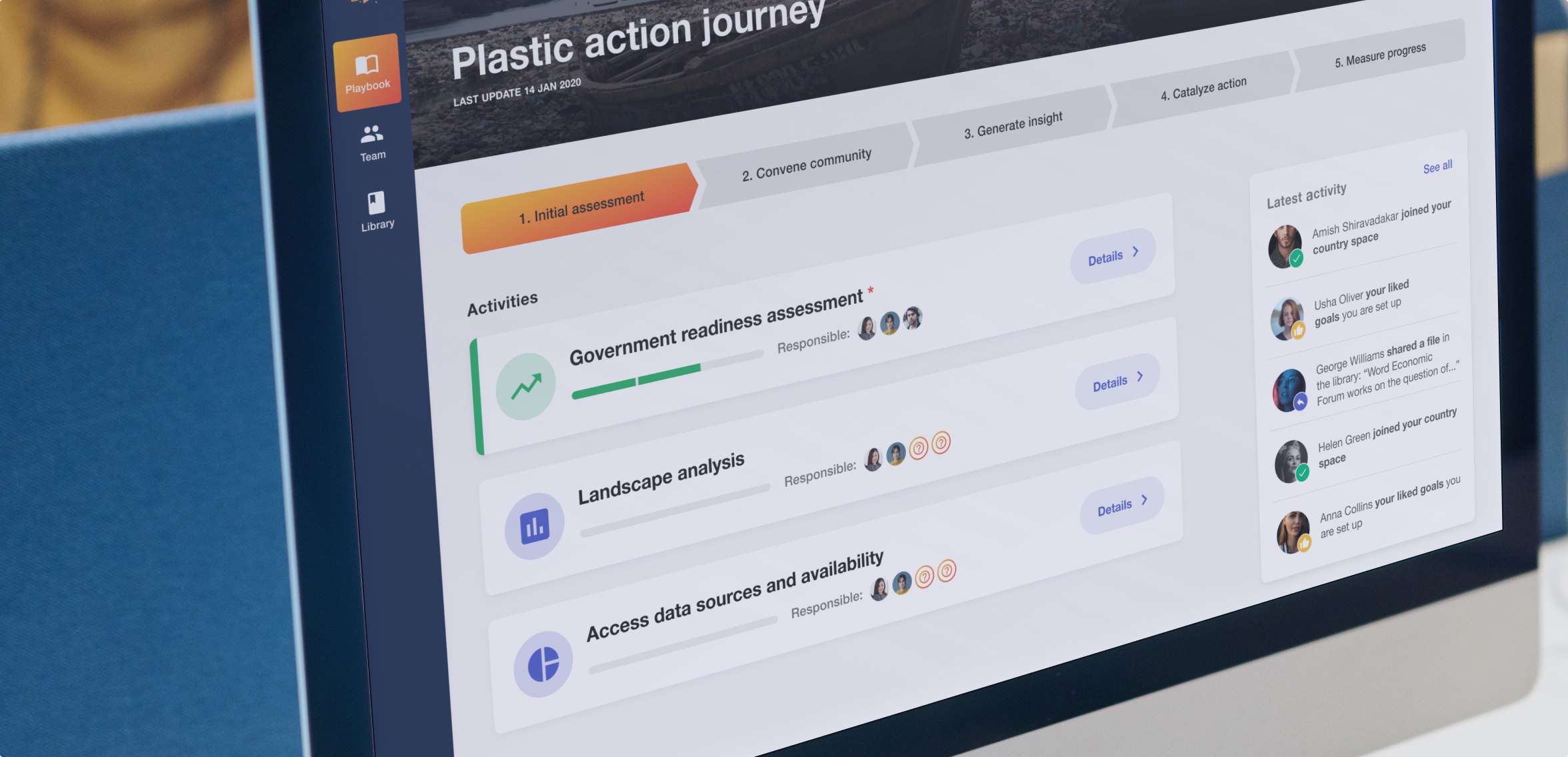A one-stop-shop for policy creation
Supporting and guiding public and private-sector bodies at different stages of their journey in the battle against plastic pollution.


Design Workshops
Windmill and GPAP’s work together began with a series of initial workshops that utilized five different activities and produced valuable outputs.
- Value Proposition Canvas. Brainstormed pains, gains, and customer jobs for the most important persona.
- Lightning Demos. Participants demoed existing sites for design and content inspiration.
- Crazy 8s. A rapid sketching exercise to quickly explore creative ways to present plastic policy action to potential users.
- As-is Mapping. Considered pains, gains, and tasks for key persona groups and mapped their work through the current process.
- Ideal Prioritization. Features that naturally rose to the top during preceding stages were ranked by importance and feasibility.
Sprint 1 – Readiness Assessment and Onboarding
The goals of Sprint 1 were to design a national readiness assessment tool to identify where a country is on their plastic action journey; and to define key questions and create a storyboard and high-level flowchart of onboarding and the readiness assessment process. To achieve that, first we held interviews with the various teams.
The pertinent questions that emerged were: Does the user have the team and capacity to implement plastic action initiatives? What steps do they need to take to start framing policies? How do we make that process usable and accessible?
The team created as-to-be journey maps to understand how different customer personas would collaborate on the platform. The as-to-be journey maps produced journey findings and help frame key questions. From there, Windmill created storyboards, a flowchart, and lastly lo-fi designs for the readiness assessment
Sprint 2 – Template and Step-by-Step Guide
The purpose of Sprint 2 was to create an interactive step-by-step plastic action process within the tool that takes a team through the plastic action journey over a long period, i.e. a year or more.
Like Sprint 1, Sprint 2 began with interviews with the various key stakeholders. Then, to create a template, the team defined stages and steps for the overall users’ journey. Each step consisted of different activities, some being marked as essential and some designated ‘good-to-haves’. The output of Sprint 2 was a flowchart and hi-fi designs of key screens that show the onboarding of a policy lead, including exploring the community, delving into the knowledge repository, and joining a private country space.

Action
Following on the from discovery work, GPAP commissioned Windmill to bring its vision of a specialized community for GPAP’s constituents to life.
Design and development work was completed during spring 2021 and an MVP was released in June that year. The platform hosts a goal-focused community committed to fighting plastic pollution and facilitates events and interaction between constituents as well as handles knowledge management. It allows civil servants, policymakers, and other users to learn best practices, access case studies, and see how other countries tackle plastic pollution.
Two findings were central to our design work:
Firstly, Windmill identified the need for online communities to provide a unique and valuable experience for their users. A community platform with productivity and usability baked into its design is one that will deliver on its promise and motivate its users, driving up usage and interactions.
The second finding was understanding that our audience needs a roadmap, or a structure they can use as a template, for their local context. They need the right amount of info and tools in one place that can help them form and implement a solution.
“This tool takes a bunch of information and makes it easily digestible...really looking forwards to using it.” – User Tester

Impact
Windmill’s work on GPAP marked a shift from a closed-off, fragmented approach to communication and plastic waste activism, to a connected and collaborative domain with knowledge and information made available to officials and activists worldwide. By structuring and curating information, we were able to develop a solution that scales with its userbase.
